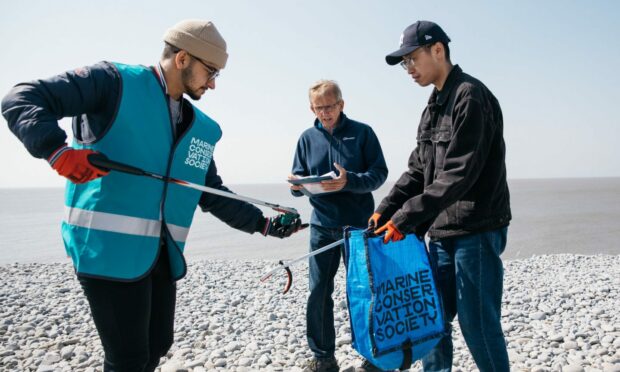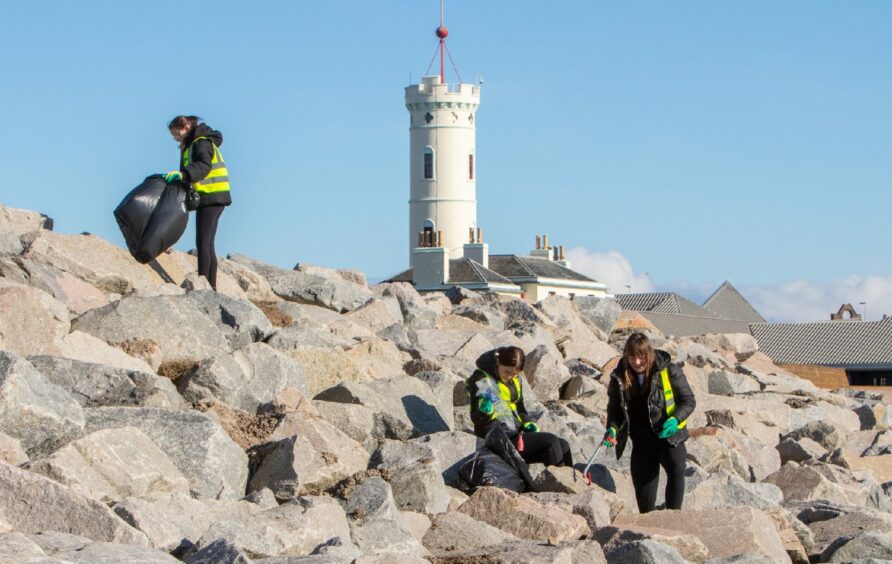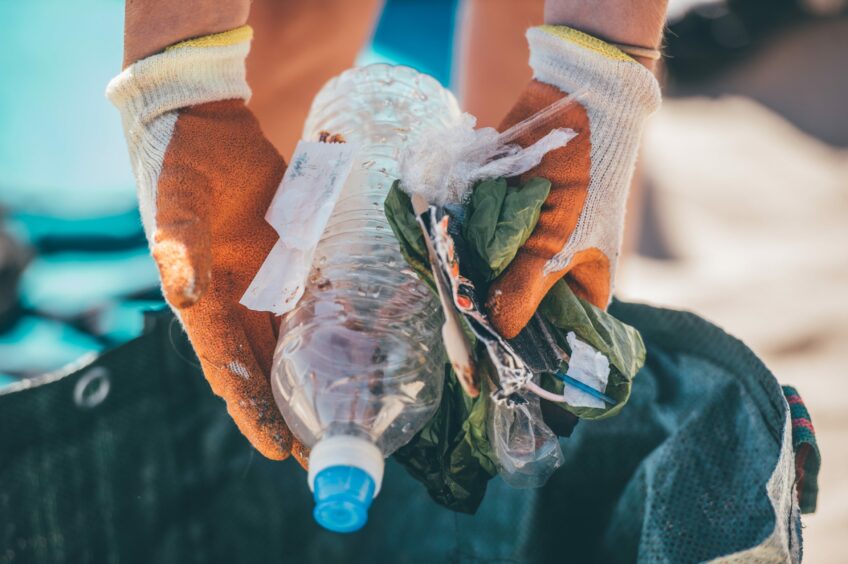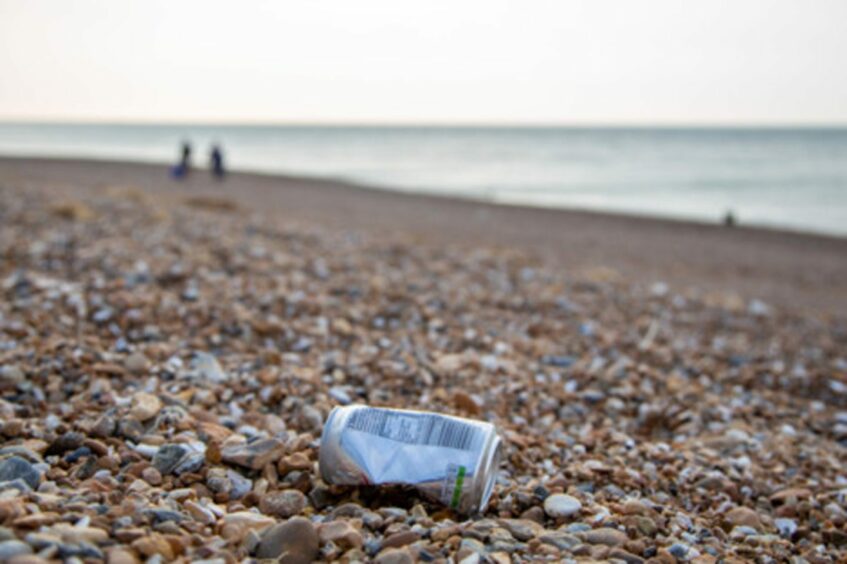More than eight miles of cleared Scottish beaches and 400 bags of litter later, this year’s Great British Beach Clean has emphasised Scotland’s spiralling litter issues.
Around 1,200 volunteers helped to clear Scotland’s beaches for the Marine Conservation Society’s annual beach clean this year.
Taking place from September 16 to 25, the Great British Beach Clean helps not only clear beaches but also gather vital data used to lobby governments.
Some past examples of this have helped result in the introduction of the carrier bag charge and bans on single-use items.
This year, litter levels were shown to have risen by a staggering 42% in Scotland since 2021 causing major concerns from the charity.
Wet wipes found increased by 150%
While the reason for the rise in levels is not known, the Marine Conservation Society said it highlighted a “serious issue” with unsustainable consumption and pollution.
Out of the 1,830kg of rubbish cleared, over 7,000 wet wipes were found by volunteers, resulting in a 150% increase from 2021.
This averaged at around 63 wet wipes being recorded for every 100 metres on Scottish beaches surveyed.
This reflects an increasing trend being reported in Scotland with the amount found increasing by 372% since 2015.
Wet wipes were the second most common litter items found with plastic and polystyrene being the worst offenders. A large amount of crisp and sweet packets and lollypop sticks were also recorded.
‘Bold action needs to be taken now’
With wet wipes choking beaches and blocking pipes which results in contaminated water and sewage spills, the society is calling to ban plastic in single-use wet wipes.
The charity is also lobbying for an increased monitoring of CSOs and action to stop them from spilling into rivers and the sea.
Catherine Gemmell, Scotland conservation officer at the Marine Conservation Society said: “No one wants to go to a beach and find themselves surrounded by washed-up wet wipes.
“We have been talking about this for far too long, and our beaches and wildlife are suffering as a result.
“Bold action needs to be taken now. We need Scottish Government to ban plastic in single-use wet wipes and invest in the sewage network to stop spills from sewer overflows polluting our seas.”
With 93% of all surveys in Scotland finding plastic bottles, glass bottles, lids and/or metal drinks cans, the charity said the deposit return scheme cannot come soon enough.
From August 2023, a 20p deposit will be refunded when these items are recycled. It is hoped this incentive will help decrease drink-related items found on beaches.
For more information on the Marine Conservation Society’s work on ocean pollution, please visit the website.




Conversation